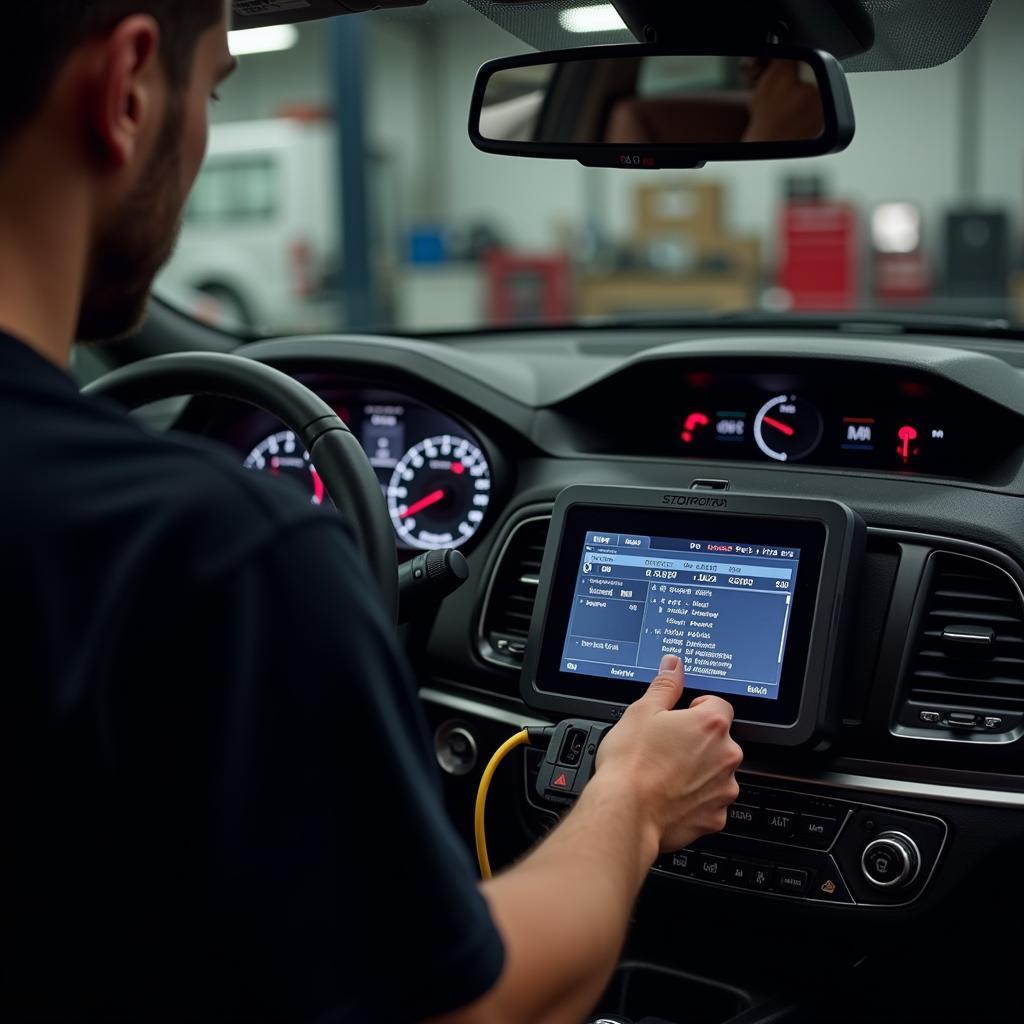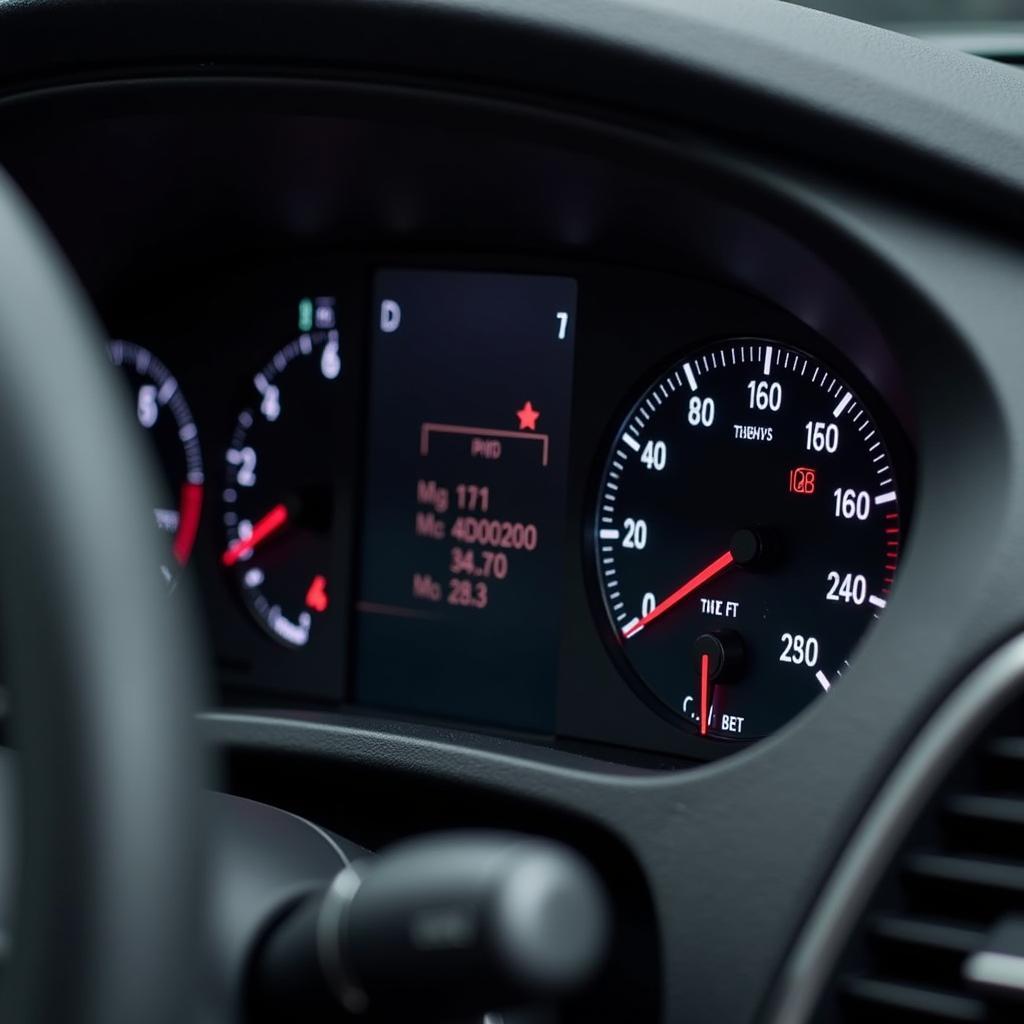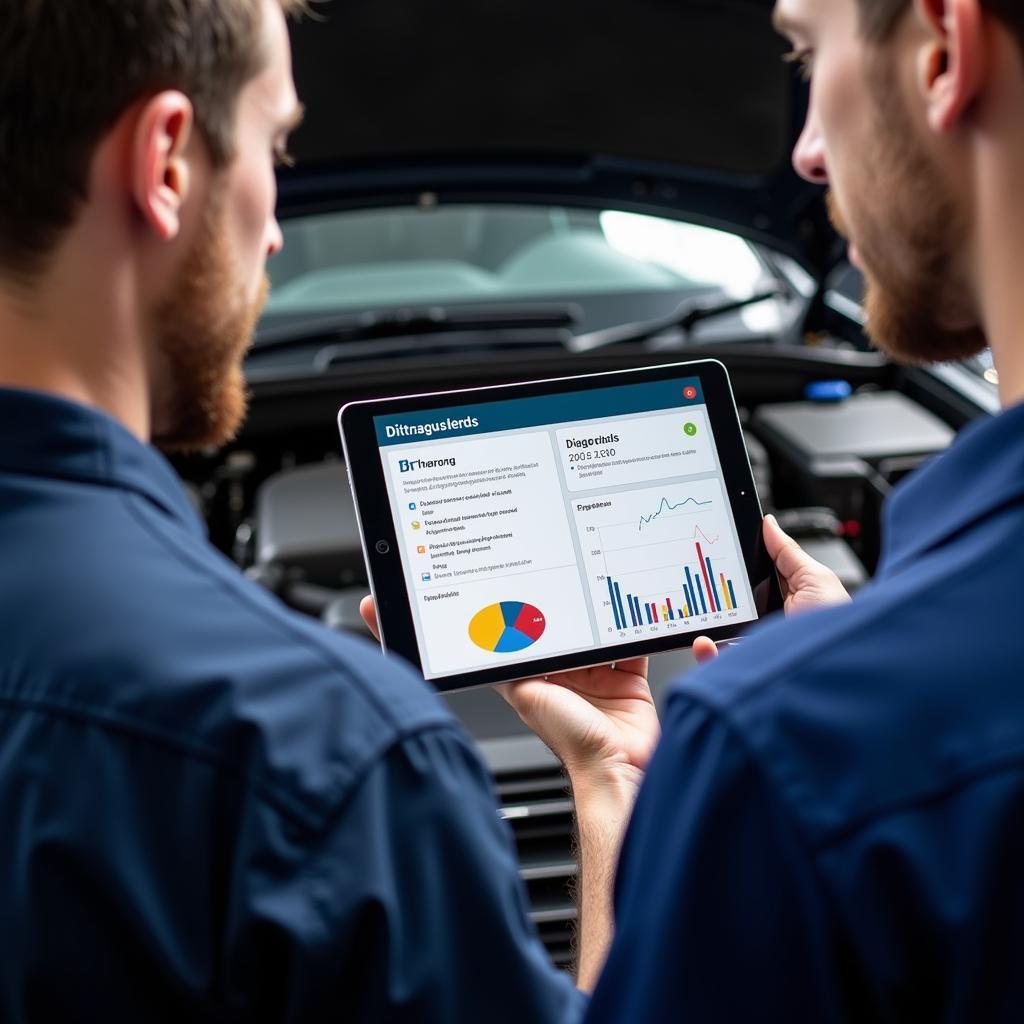Car Service Diagnostics are an essential part of modern vehicle maintenance. No longer a mysterious black box, these sophisticated systems offer a window into your car’s health, allowing mechanics to pinpoint issues with remarkable accuracy. This article delves into the world of car service diagnostics, explaining its importance, benefits, and how it keeps your vehicle running smoothly.
What are Car Service Diagnostics?
Imagine a doctor using advanced tools to diagnose a patient’s illness. Car service diagnostics work similarly. They involve using specialized electronic equipment that interfaces with your car’s computer system, also known as the Engine Control Unit (ECU). This system monitors various aspects of your vehicle’s performance, from engine operation and emissions to airbag deployment and braking systems.
When a problem arises, the ECU stores a Diagnostic Trouble Code (DTC) in its memory. Car service diagnostics tools read these codes, essentially translating your car’s language into understandable terms for mechanics. This allows them to identify the root cause of the issue, rather than relying on guesswork or replacing parts unnecessarily.
 Car Diagnostics Equipment in Action
Car Diagnostics Equipment in Action
Why are Car Service Diagnostics Important?
Car service diagnostics have revolutionized the way we approach vehicle maintenance and repair. Here are compelling reasons why they are essential:
1. Accurate Diagnosis: Gone are the days of mechanics relying solely on their senses and experience. Car service diagnostics provide objective data, eliminating guesswork and leading to quicker, more accurate diagnoses.
2. Cost Savings: By pinpointing the exact problem area, car service diagnostics can save you money on unnecessary repairs. Instead of replacing multiple components in a trial-and-error approach, mechanics can focus on fixing the actual fault.
3. Improved Safety: Many car systems, such as airbags, anti-lock brakes (ABS), and electronic stability control (ESC), rely on complex sensors and electronics. Car service diagnostics can detect faults in these safety-critical systems, ensuring they function correctly and keeping you safe on the road.
4. Enhanced Performance: A well-maintained vehicle performs optimally. Car service diagnostics can identify minor issues that might affect fuel efficiency, engine performance, or emissions, allowing for timely adjustments and keeping your car running at its best.
How do Car Service Diagnostics Work?
The process of car service diagnostics typically involves the following steps:
1. Connecting the Diagnostic Tool: Mechanics use a handheld device that connects to your car’s OBD-II port, usually located under the dashboard on the driver’s side.
 OBD-II Port Location
OBD-II Port Location
2. Retrieving Diagnostic Trouble Codes: The diagnostic tool communicates with the ECU, retrieving stored DTCs. These codes are alphanumeric and correspond to specific issues within the vehicle’s systems.
3. Interpreting the Codes: Mechanics use their knowledge and experience, often aided by online databases or software, to interpret the DTCs. This helps them understand the nature of the problem and its potential causes.
4. Performing Further Tests: In some cases, retrieving DTCs is just the first step. Mechanics might need to perform additional tests, such as measuring voltage, resistance, or pressure, to pinpoint the fault accurately.
5. Recommending Repairs: Based on the diagnostic findings, mechanics will recommend necessary repairs or maintenance procedures. They should explain the issues clearly, outlining the recommended course of action and associated costs.
 Mechanic Discussing Diagnostic Results
Mechanic Discussing Diagnostic Results
What to Expect During a Car Service Diagnostic?
Most car service centers offer diagnostic services, either as a standalone service or as part of a more comprehensive inspection. When you take your car in, here’s what you can generally expect:
- Initial Assessment: A service advisor will ask about the symptoms you’ve experienced, noting down any unusual noises, warning lights, or performance issues.
- Diagnostic Scan: A technician will connect the diagnostic tool and retrieve DTCs from your vehicle’s ECU.
- Results and Recommendations: The service advisor or technician will explain the diagnostic findings, discussing potential causes and recommending repair options.
- Repair Authorization: You will have the opportunity to ask questions and authorize any necessary repairs. Reputable shops will provide you with a clear estimate before proceeding.
Car Service Diagnostics: Essential for Modern Vehicle Care
Car service diagnostics have become an indispensable part of modern vehicle maintenance. They offer accuracy, cost savings, and peace of mind, ensuring that your car receives the correct care it needs to run smoothly and safely. The next time you experience car trouble, remember the power of car service diagnostics.
FAQs about Car Service Diagnostics
1. How much does a car service diagnostic cost?
The cost of a car service diagnostic can vary depending on your location, the make and model of your car, and the complexity of the issue.
2. Can I perform car service diagnostics myself?
While affordable OBD-II scanners are available for purchase, interpreting DTCs and performing accurate diagnostics require specialized knowledge and experience.
3. Will car service diagnostics void my car’s warranty?
No, car service diagnostics will not void your car’s warranty.
4. How often should I get my car’s diagnostics checked?
It’s generally a good idea to have your car’s diagnostics checked at least once a year or as part of your regular maintenance schedule.
5. Can car service diagnostics detect all car problems?
While car service diagnostics are highly effective, they might not detect every possible car problem. Some mechanical issues might not trigger DTCs or require additional inspection and testing.
For expert car computer diagnostics services in Dublin, Newark-on-Trent, Hereford, Nottingham, or if you require top-notch A1 Diagnostics Bosch car service, visit DiagFixPro. We have a team of experienced technicians equipped with the latest diagnostic tools to accurately diagnose and repair your vehicle.
Need help with car diagnostics? Contact our 24/7 support team via WhatsApp: +1(641)206-8880, Email: [email protected].

Leave a Reply